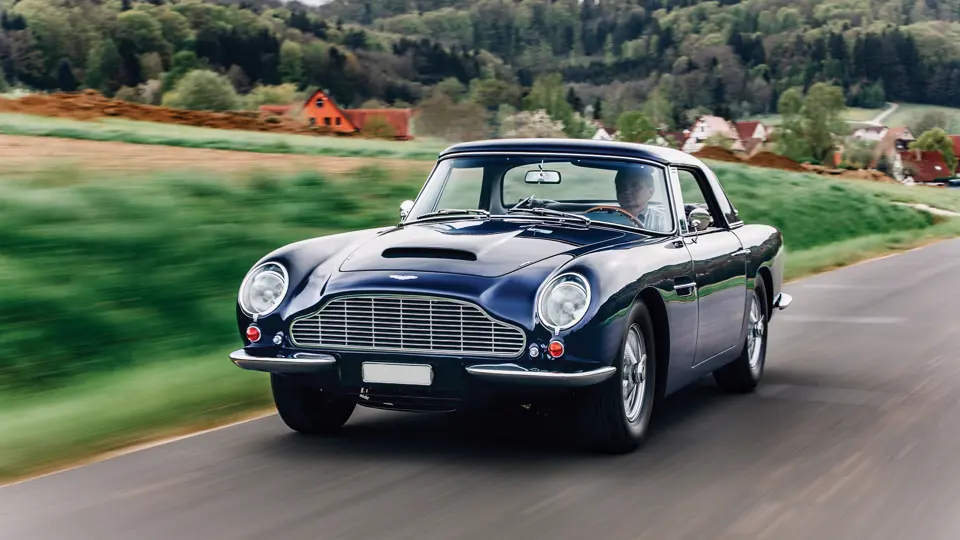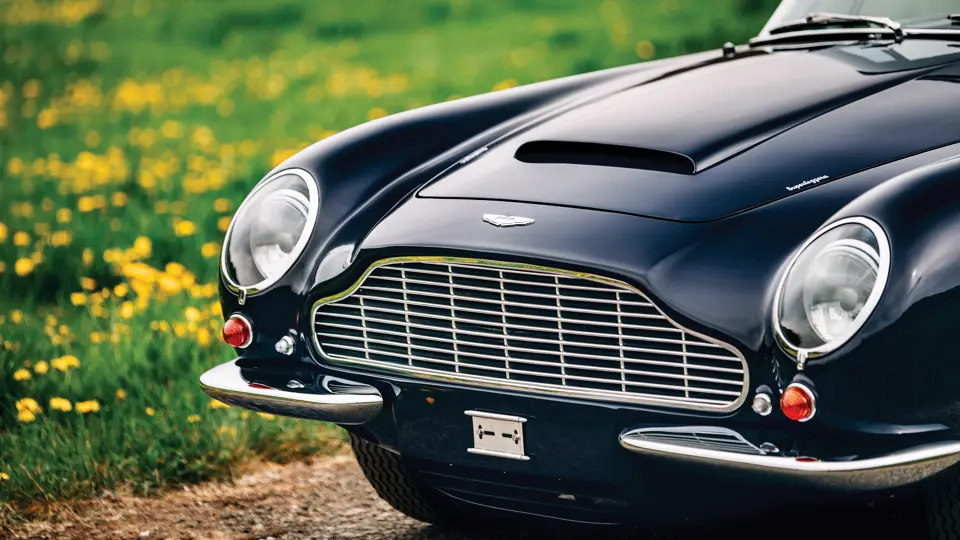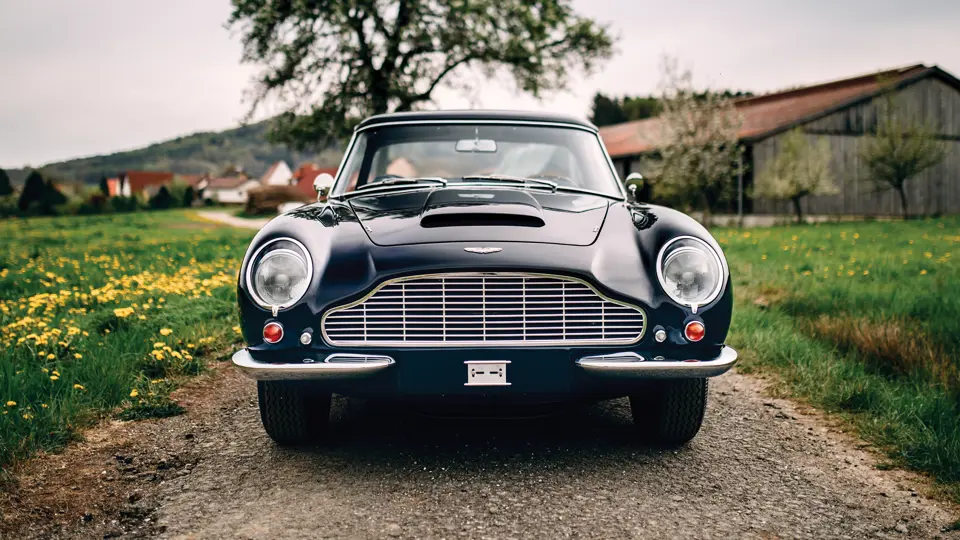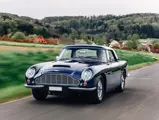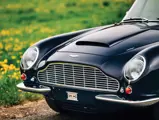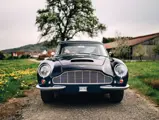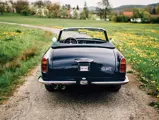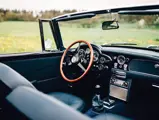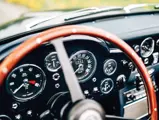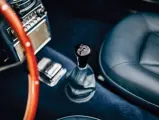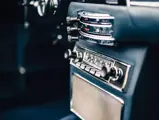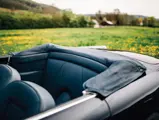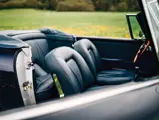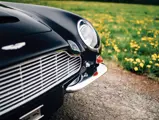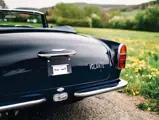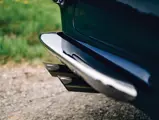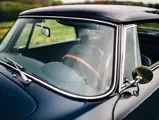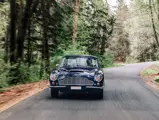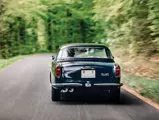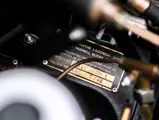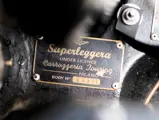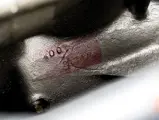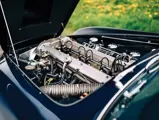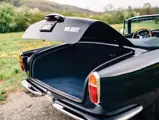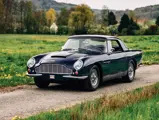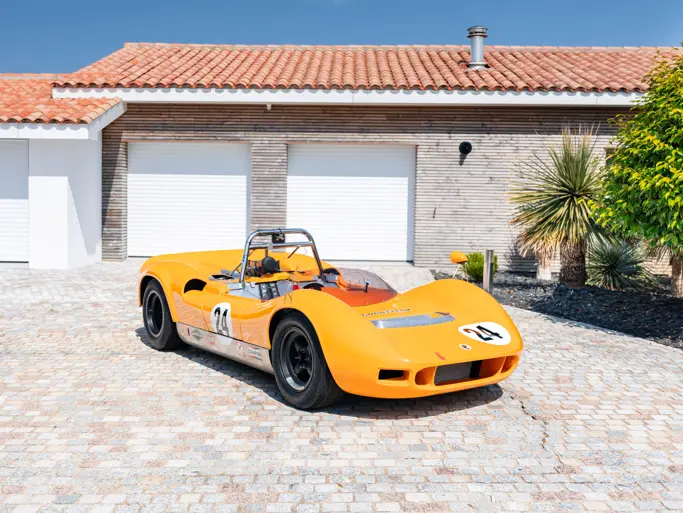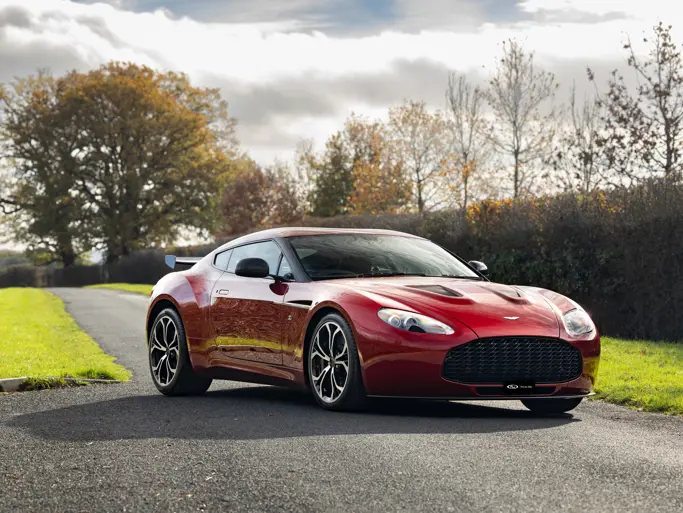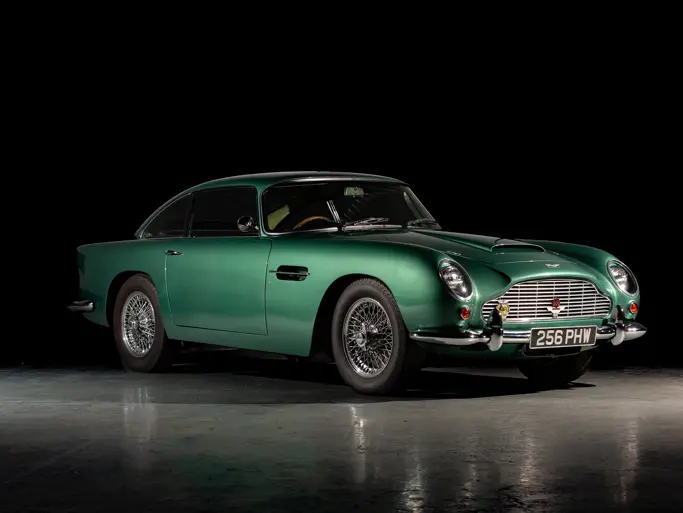
1965 Aston Martin Short-Chassis Volante
{{lr.item.text}}
€1,805,000 EUR | Sold
{{bidding.lot.reserveStatusFormatted}}
- One of the last Short-Chassis Volantes built; one of just thirty-seven produced
- Offered from over twenty-five years of single ownership
- Late 1990s restoration with Aston Martin experts Roos Engineering
- Retains its original engine
- Una delle ultime Volante a passo corto costruite; una delle sole trentasette prodotte
- Proveniente da oltre venticinque anni di unica proprietà
- Restaurata negli anni '90 dagli esperti della Aston Martin Roos Engineering
- Ancora equipaggiata con il suo motore originale
With production beginning on the new DB6 in 1965, Aston Martin’s senior management realized they still had thirty-seven unallocated DB5 chassis. The chassis itself was too short to be utilised for the new model so it was decided to create a limited run of “interim” convertibles, combining the best portions of both the DB5 and the DB6 into one automobile. Dubbed the Volante, this was the first Aston Martin to use this name – since used on every open production car since, and remains today as Aston Martin’s lowest-production convertible.
As seen on the car offered here, the early Volante’s were essentially a combination of the DB5 bodywork with the addition of several DB6 elements. Bodywork was produced using Touring’s patented Superleggera process, just like the DB5. However, features such as four-corner bumpers and V-stitched Connolly leather seating will quickly be recognized as coming from the DB6. Distinctive to the Volante are its taillights - with the strip of chrome between the brake light and the turn signal – and the new ‘Volante’ badge. At its heart is Aston Martin’s race-proven all-alloy, twin-cam straight-six powerplant, in 4.0-liter form, with triple SU carburettors, and originally rated at 282 brake horsepower at 5,500 rpm.
Originally produced in Fiesta Red, this Short-Chassis is now presented in the subtly beautiful dark blue. The late 1990s saw chassis number DBVC/2335/L undergo a restoration with Roos Engineering in Bern, Switzerland, one of Aston Martin’s dedicated Heritage Specialists. This work was commissioned by its current owner, a German-based collector. It now presents beautifully and fitted with its matching hardtop is even suited for the cooler months, and is noted to retain its original engine.
A interesting interim model from a high point in Aston Martin’s history, Short-Chassis are highly sought after by collectors not only for their rarity, but their sporting good looks. Offered from over twenty-five years of single ownership, it goes without saying that an opportunity to purchase a Short-Chassis should not be overlooked, and this example checks all the right boxes.
Con l'inizio della produzione della nuova DB6 nel 1965, il senior management di Aston Martin si rese conto di avere ancora 37 chassis DB5 invenduti. Il telaio, era troppo corto per essere utilizzato per il nuovo modello e, così è stato deciso di creare una serie limitata di vetture aperte, "intermedie", unendo le parti migliori della DB5 e della DB6 in un'unica automobile. Soprannominata Volante, questa è stata la prima Aston Martin ad utilizzare questo nome, da allora usato su tutte le Aston aperte e, rimane ancora oggi, la vettura aperta di serie della Aston Martin prodotta nel minor numero di esemplari.
Come è possibile notare sulla macchina offerta, le prime Volante erano, essenzialmente, una combinazione di carrozzeria DB5 con l'aggiunta di numerosi elementi DB6. La carrozzeria, proprio come sulla DB5, è stata prodotta dalla Touring, con il suo sistema, brevettato, Superleggera. Tuttavia, dettagli come i 4 paraurti separati ed i sedili in pelle Connolly con cuciture a V, saranno presto riconosciuti come provenienti dalla DB6. Distintive per la Volante, sono le luci posteriori, con il profilo cromato tra la luce del freno e la freccia ed il nuovo logo 'Volante'. Il cuore dell’Aston Martin è il suo propulsore, a sei cilindri in linea, completamente in alluminio, ben collaudato anche nelle competizioni, nella versione da 4.0 litri, con triplo carburatore SU, con una potenza di 282 cavalli a 5.500 giri/min.
Originariamente finita in Fiesta Red, questa Passo Corto è ora presentata nella delicatissima tonalità di blu scuro. Alla fine degli anni '90, la vettura con numero di telaio DBVC/2335/L è stata sottoposta a restauro presso la Roos Engineering a Berna, in Svizzera, uno degli specialisti del programma dedicato “Heritage” di Aston Martin. Questo lavoro è stato commissionato dall’attuale proprietario, un collezionista con base in Germania. La vettura, ancora equipaggiata con il suo motore originale, si presenta magnificamente e, dotata del suo hard top, è adatta per essere usata anche nei mesi più freddi.
Un interessante modello “intermedio” di un momento importante nella storia di Aston Martin, la “Passo Corto” è molto ricercata dai collezionisti non solo per la rarità, ma anche per l’aspetto sportivo. Offerta proveniente da oltre venticinque anni di singola proprietà, è ovvio che l'opportunità di acquistare una “Passo Corto” non debba essere trascurata e, questo esemplare ha tutte le carte in regola.


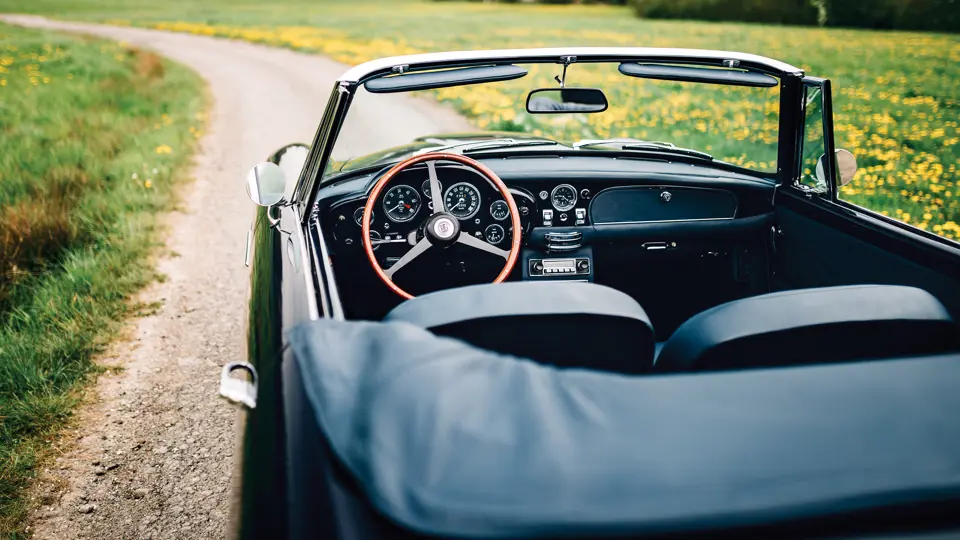

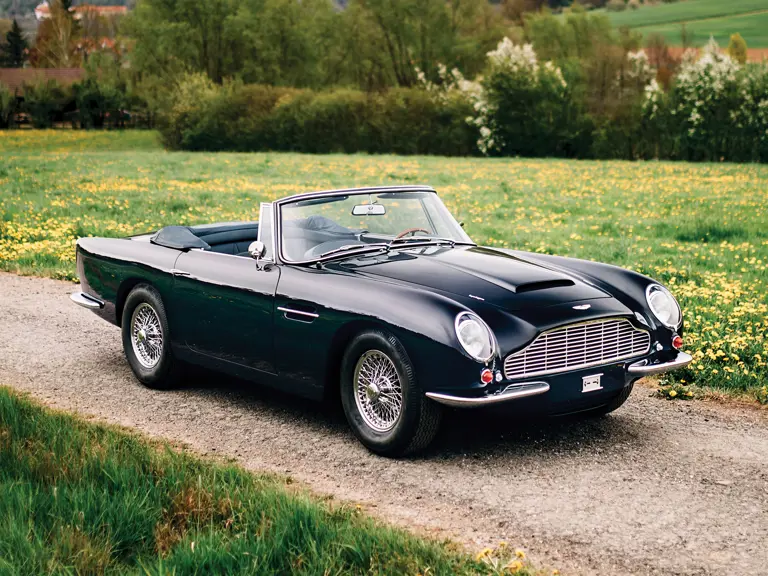
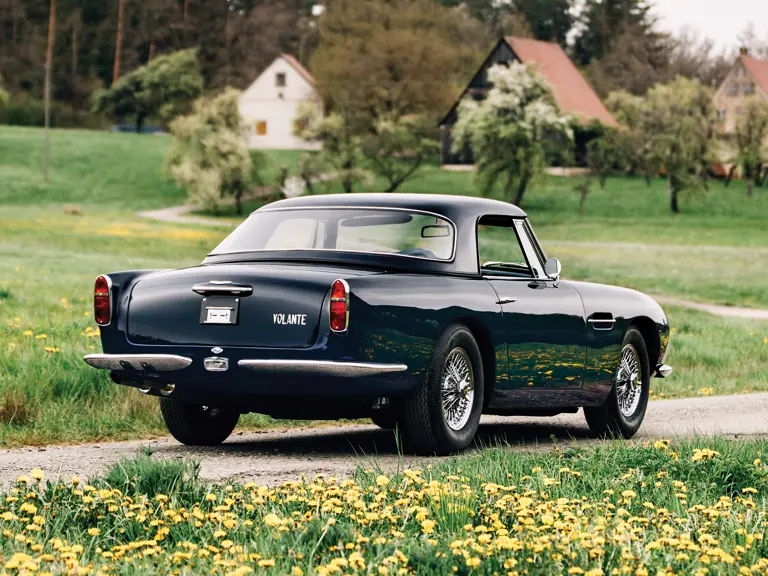
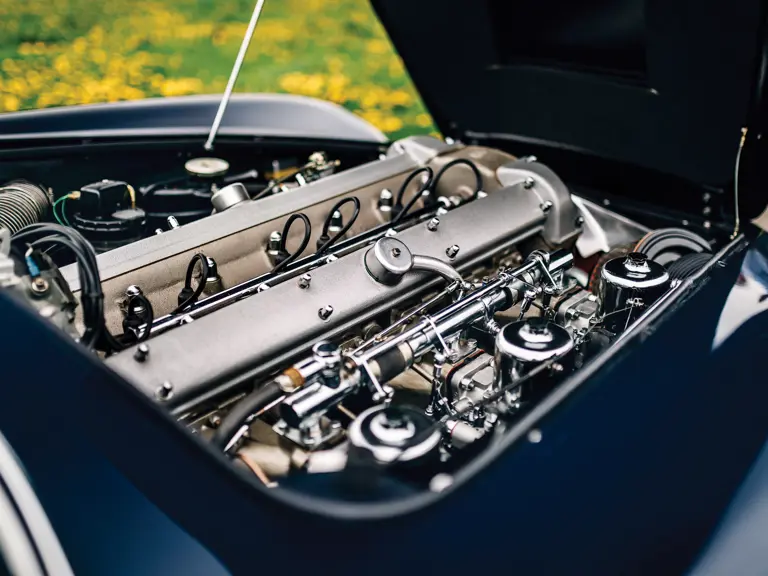
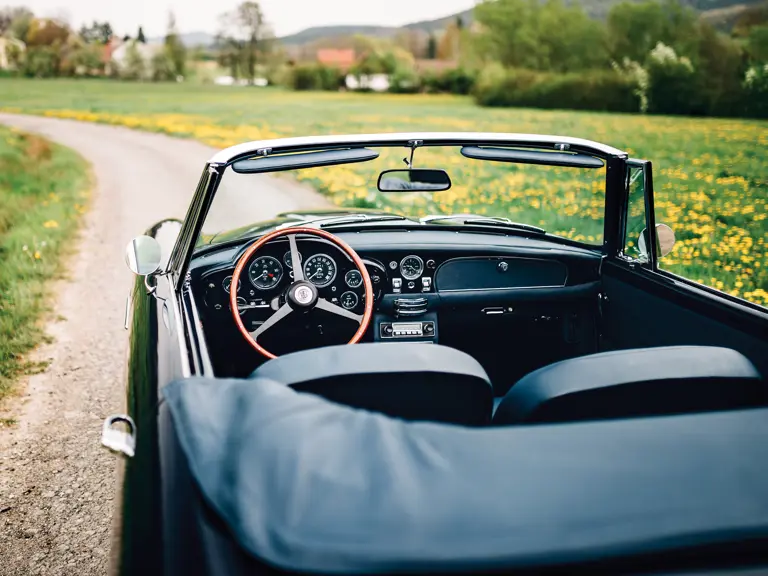
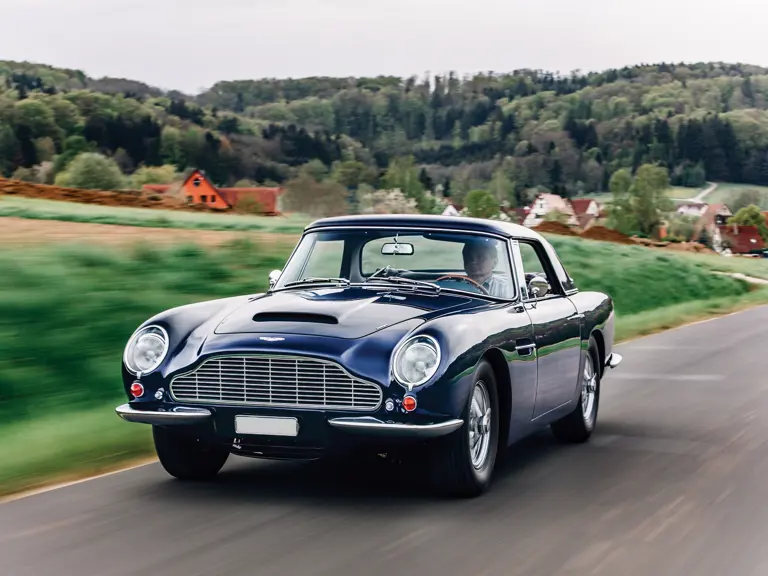
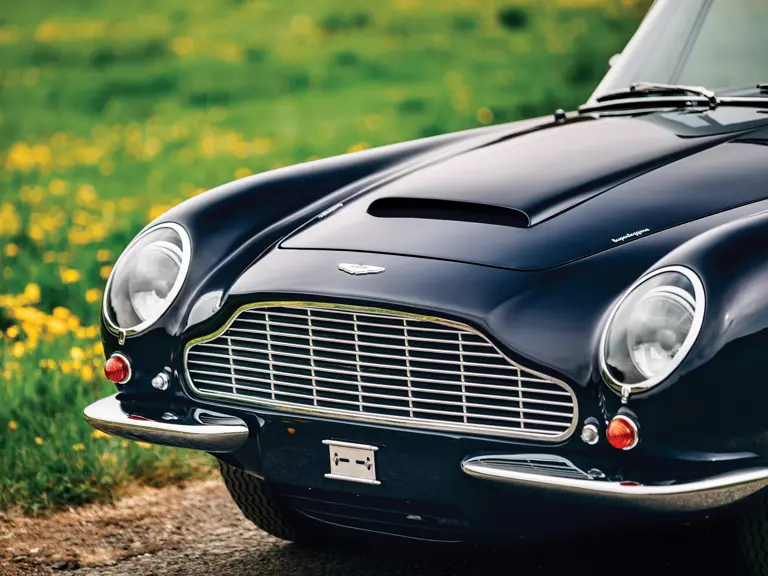
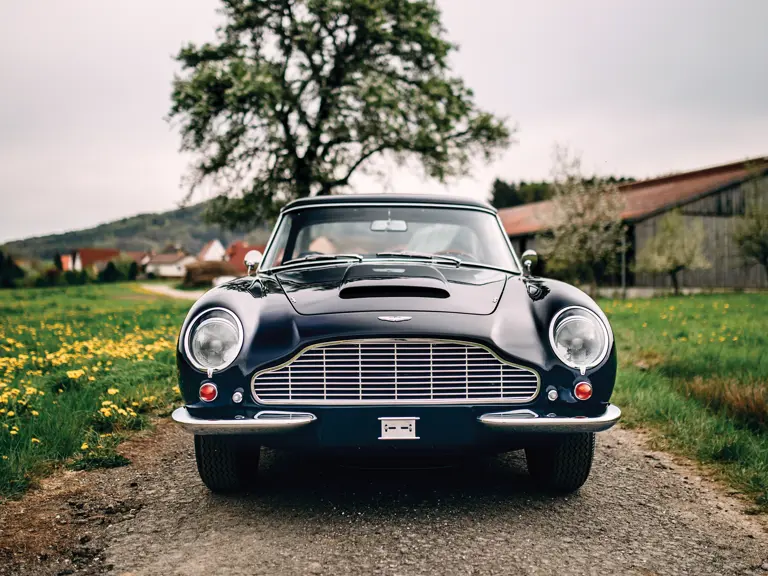
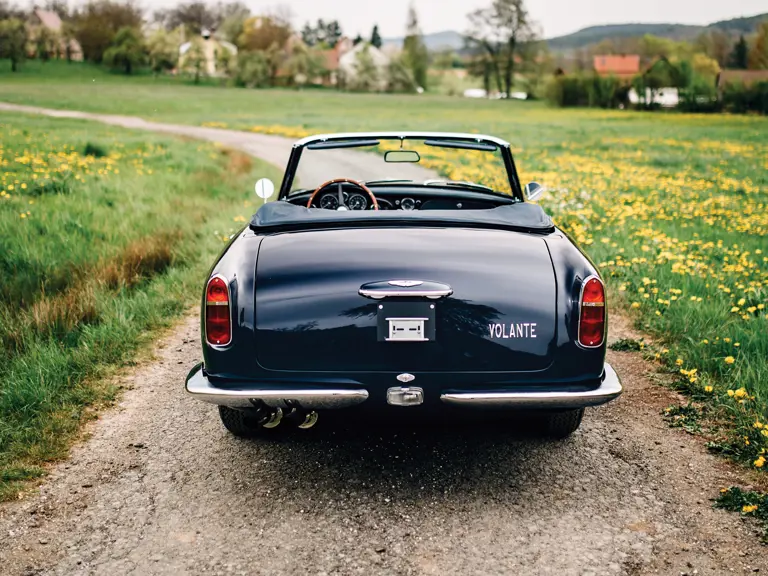
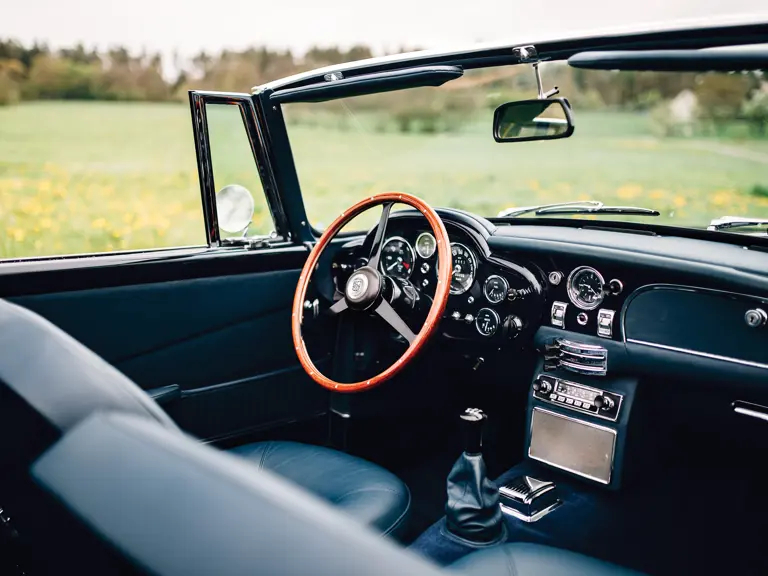
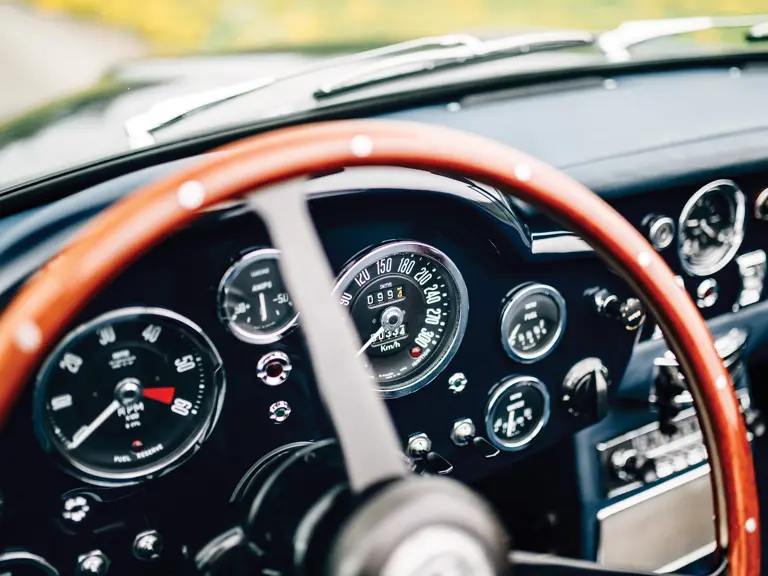
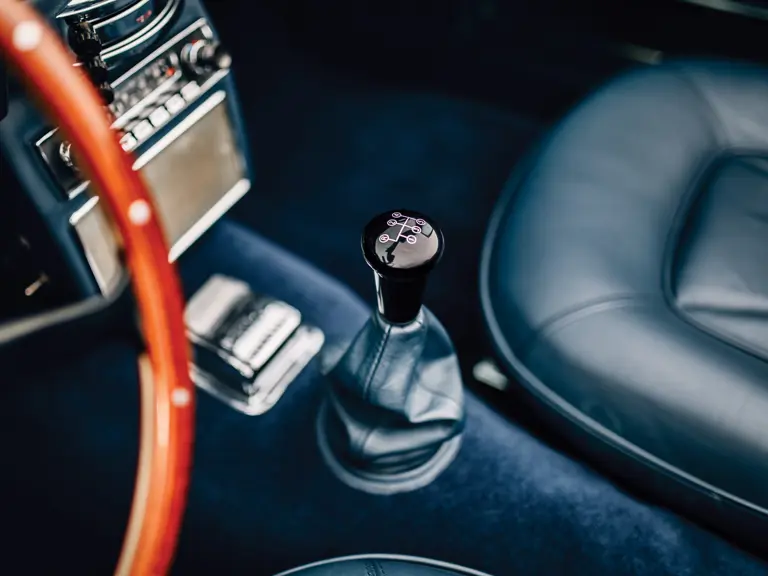
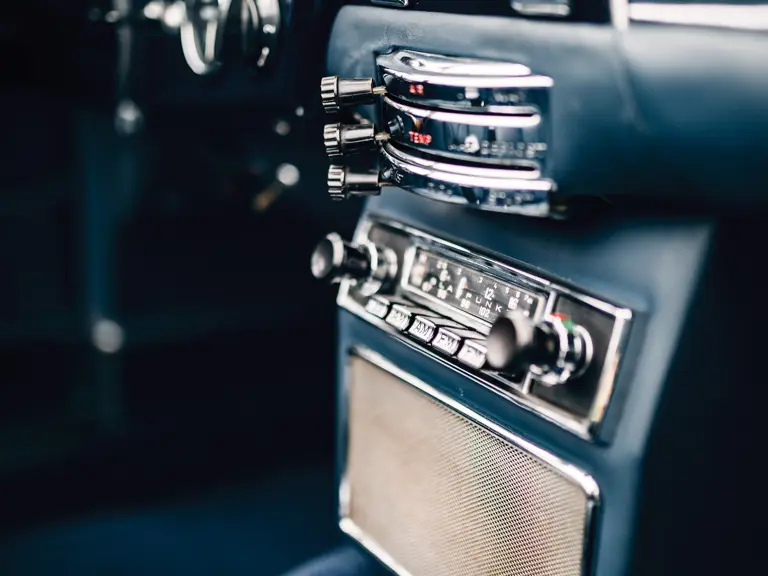
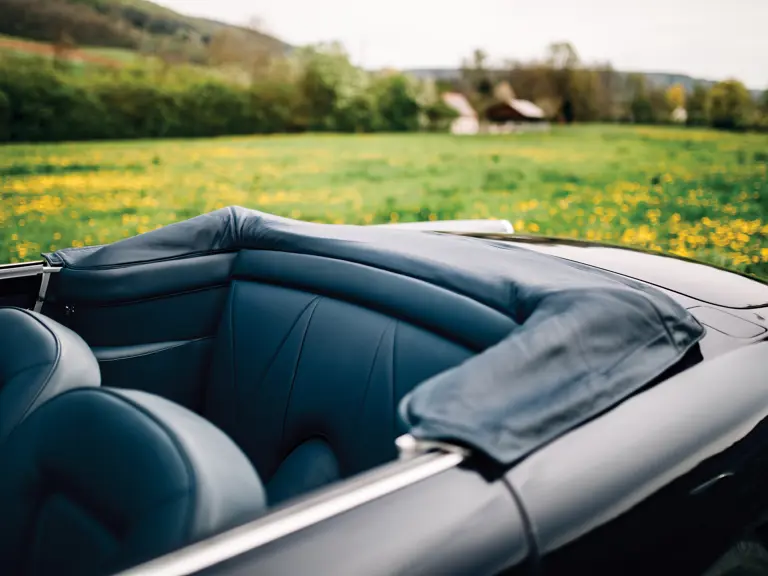
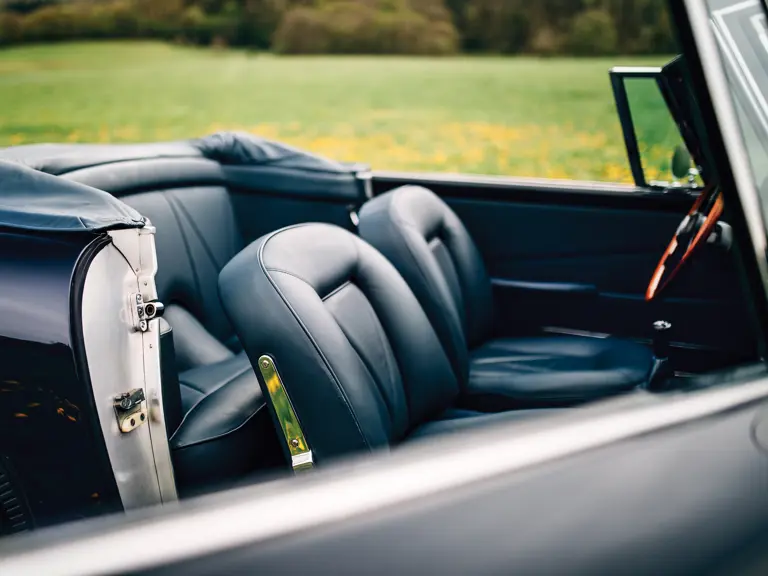
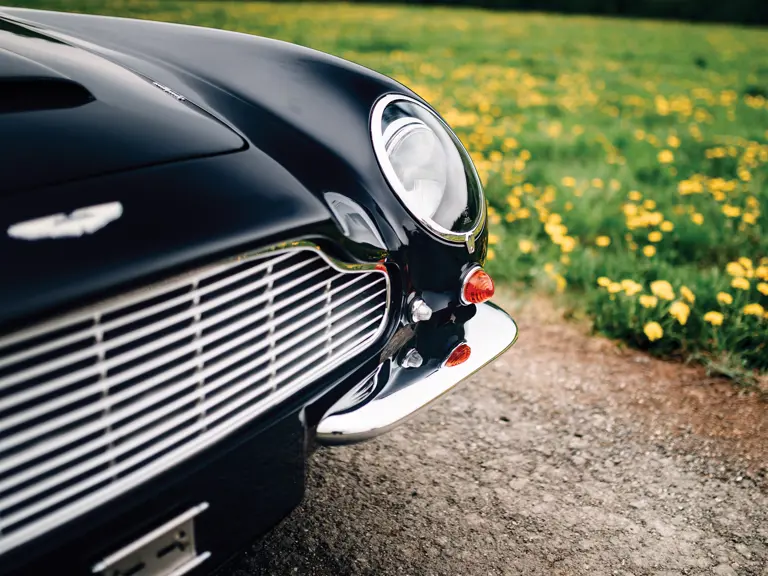

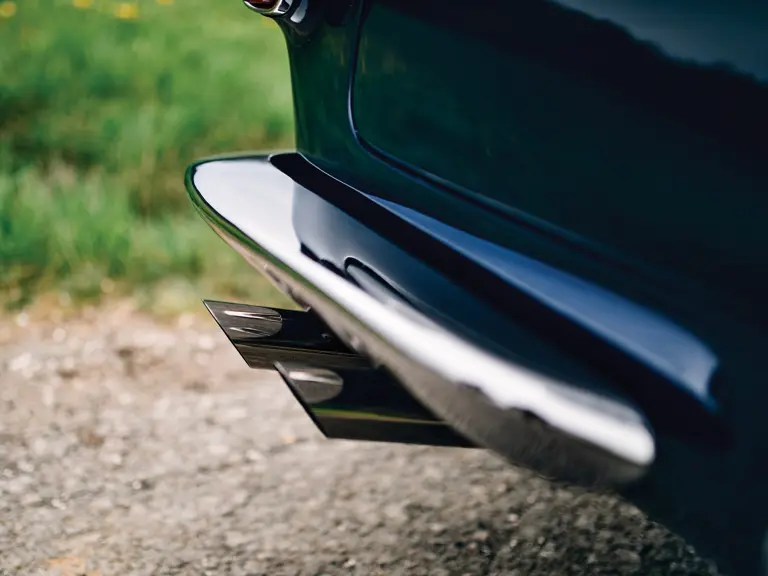
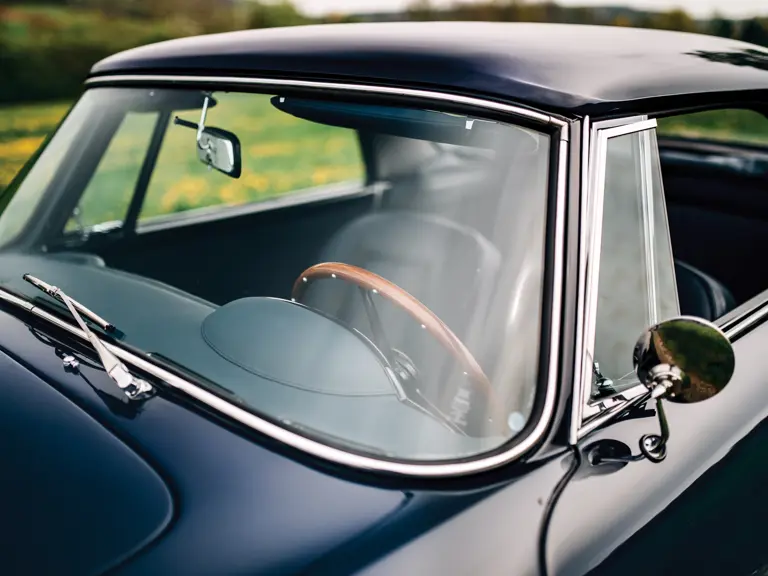
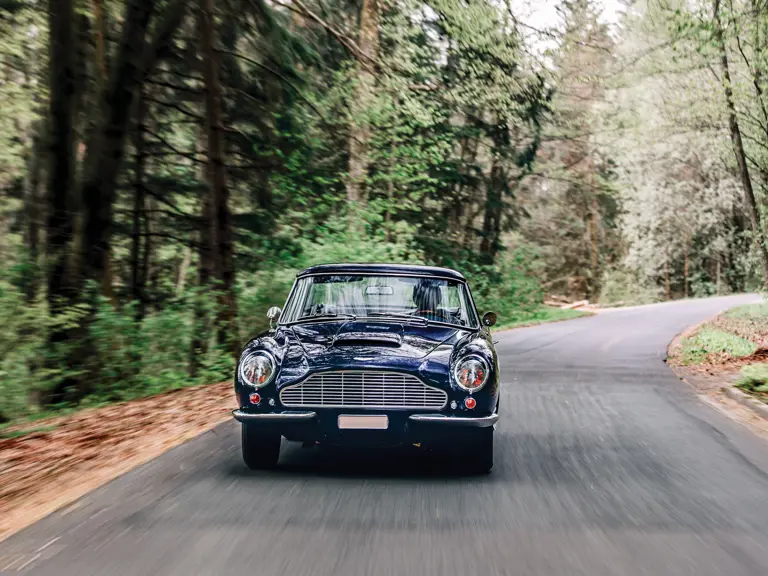
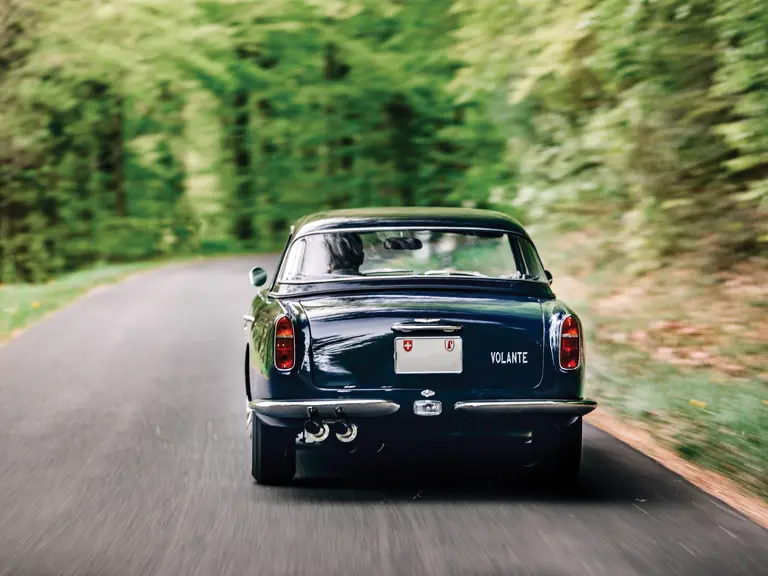
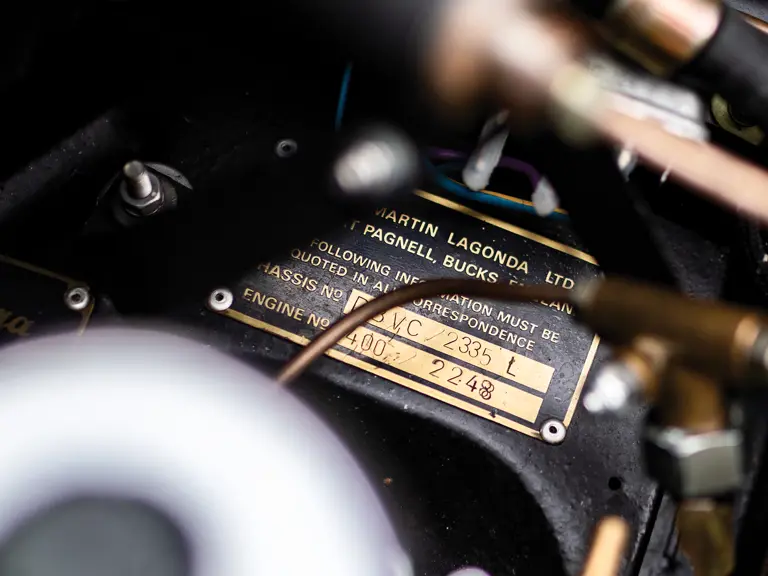
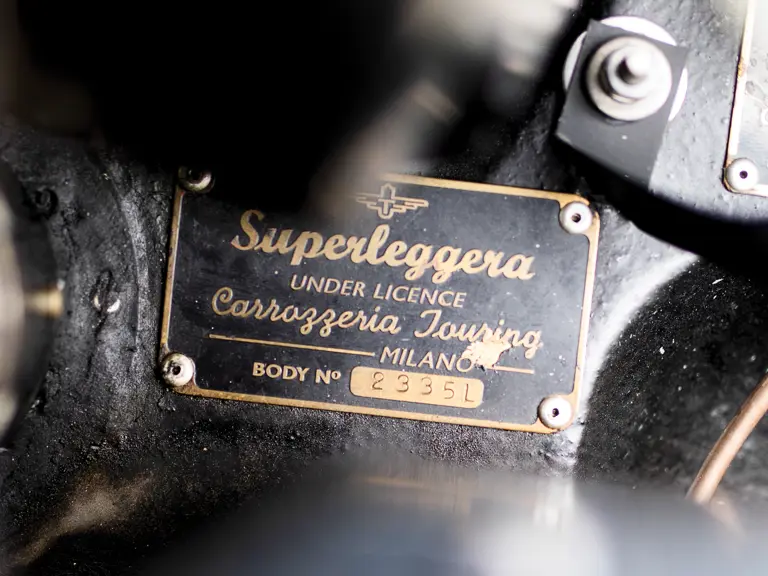
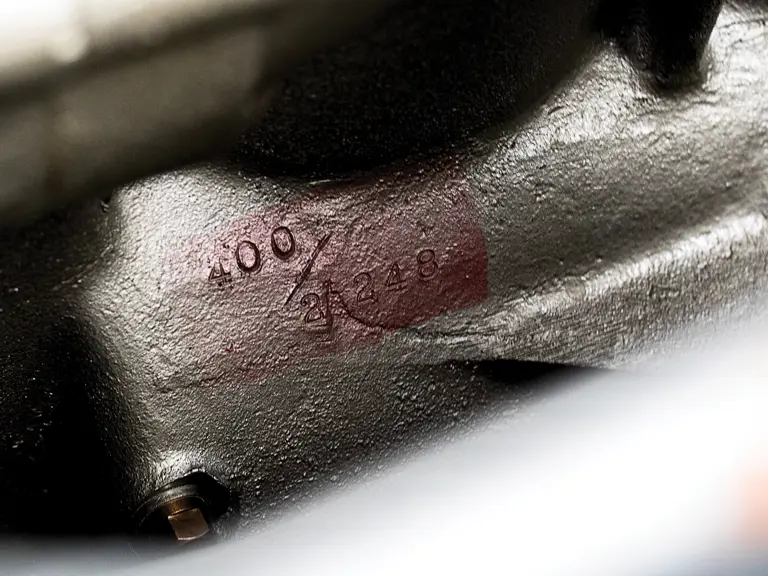
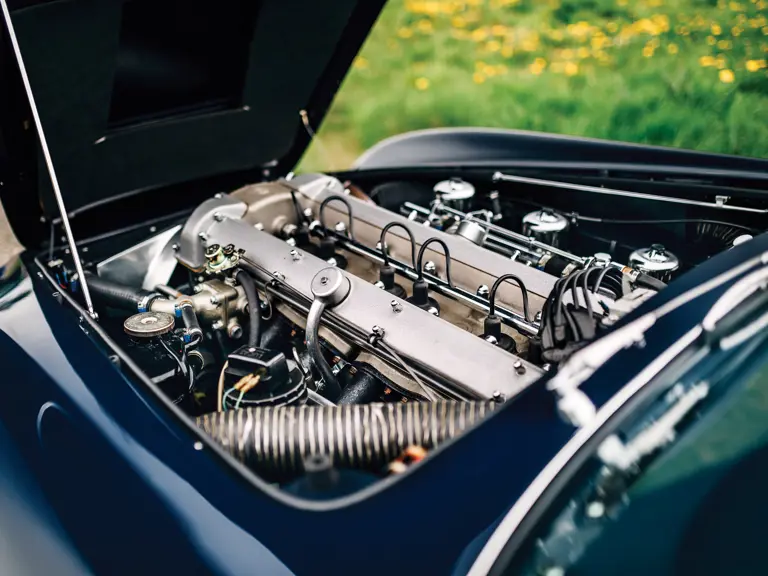
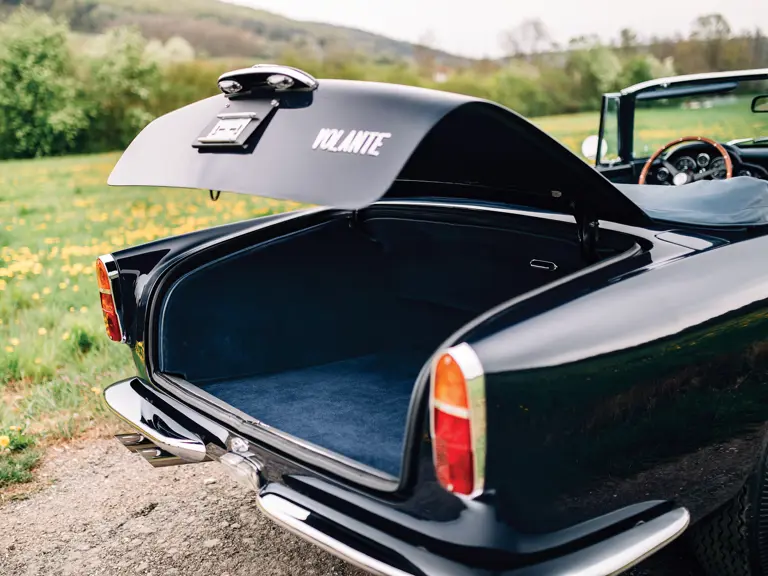
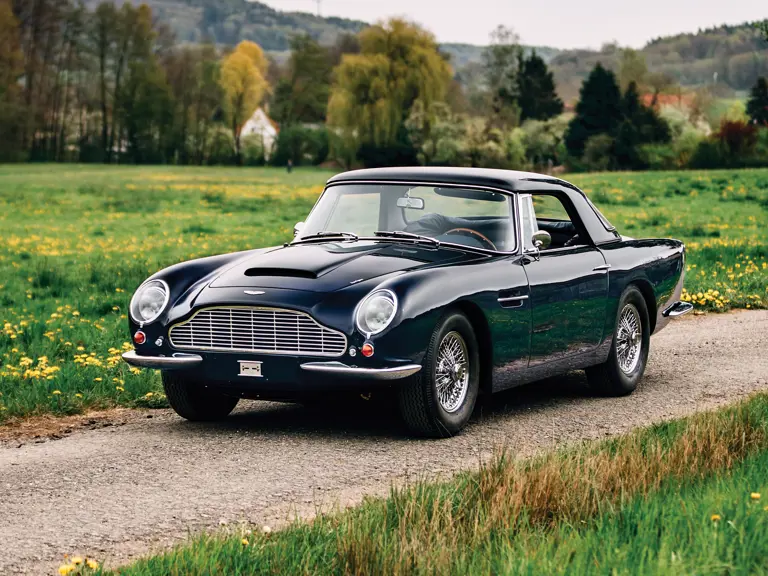
 | Cernobbio, Italy
| Cernobbio, Italy
